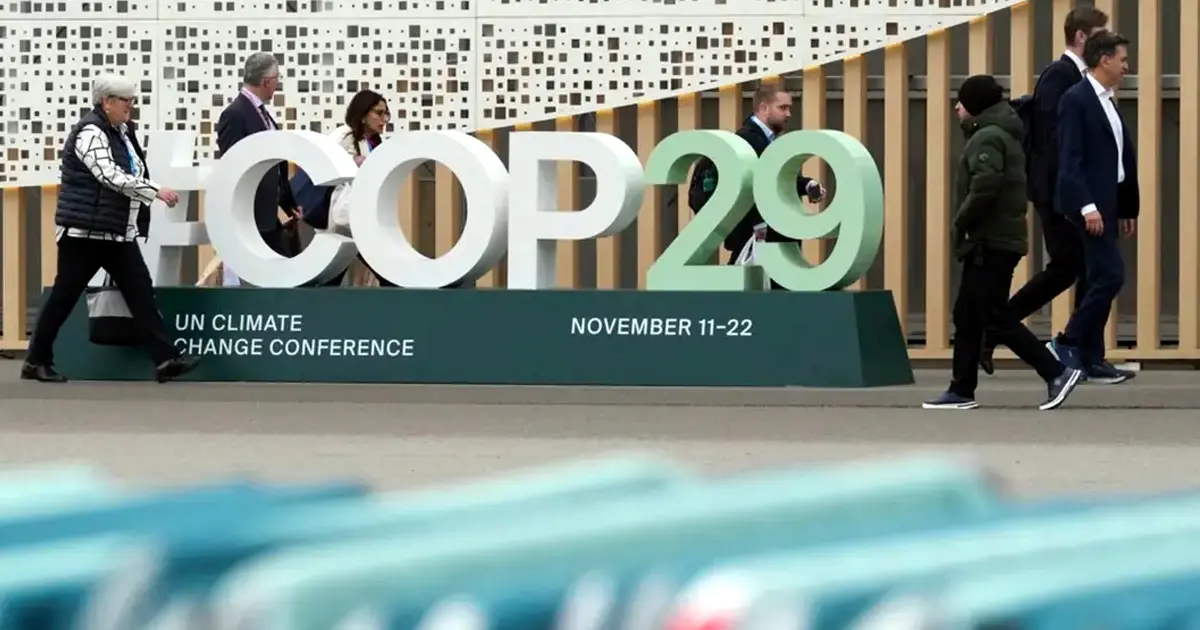Climate talks end with a blunt $300 bn deal; fossil fuels not going any soon
24 Nov 2024

The UN climate summit COP29 in Baku, Azerbaijan took an extra 33 hours to hammer out a deal on climate financing and save the annual summit from certain collapse.
The summit closed with a truncated $300 billion funding deal by rich nations, which fell far too short of the $1.3 trillion that poor nations and vulnerable island nations have been demanding.
The money, which is to come through government grants and private donations from businesses and banks to finance renewable energy projects, would help countries move away from fossil fuels.
India, taking up the cause of the Global South, rejected the revised annual climate finance package of $300 million (which is a mark-up from the original offer of $250 billion) for up to 2035, calling it "too little and too distant".
Speaking after the adoption of the deal, Chandni Raina, adviser to the Department of Economic Affairs, said the deal was adopted without giving a hearing to the aggrieved members, thereby undermining the process itself.
Rich nations, largely accused of causing climate change over the years with wanton exploitation of natural resources in the name of development, failed to meet their financial obligations in lessening the impact of climate change.
The excessive use of natural resources like fossil fuels have polluted the earth and its atmosphere to the extent of altering the ecosystem, causing oceanic upheavels, forest fires and other natural disasters across the globe. The resulting extreme changes in climate brought misery to developing countries and the least developed ones for no fault of theirs.
Developing nations, as well as countries that are particularly vulnerable to climate change, on Saturday rejected the deal and staged a walk-out for overlooking the concerns of the “sinking island nations”.
Cedric Schuster, chair of the Alliance of Small Island States, said there was nothing to carry back to the frustrated populations, but a poor deal.
The funding plan, called New Collective Quantified Goal (NCQG), also lacks the flexibility needed to adapt to changing requirements, and is difficult to access because of the complex approval procedures and stringent eligibility criteria, making it inaccessible for most LDCs.
COP29 also failed to address the crucial issue of “transition away from fossil fuels”. Any decision on that will have to wait until the next climate talks in 2025.
Azerbaijan, the host country, itself calling for a major expansion in the production of natural gas, also did not augur well for the climate conference.
Protests by nations, including Switzerland, Maldives, Canada and Australia over the treatment of the fossil fuel issue largely dissipated in the sound over the financing deal.
The head of the UN climate body, Simon Stiell, found solace in salvaging the talks from near collapse, saying it has “been a difficult journey, but we've delivered a deal.”




















